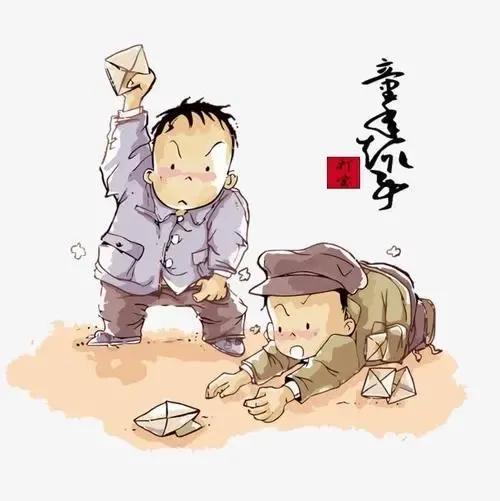
seethe音标:美音:/siːð/,英音:/siːð/
听听基本释意:
音频见原文链接
外刊例句:Director Rex Daugherty’s production unfurls on scenic designer Nadir Bey’s simple yet evocative set, whose graffiti-scrawled surfaces and old-fashioned streetlight bulbs suggest an old city seething with modern passions.导演 Rex Daugherty 的制作以风景设计师 Nadir Bey 的简单而令人回味的布景展开,其涂鸦潦草的表面和老式的路灯灯泡暗示着一座充满现代激情的古老城市。--Washington Post
The old stadium was a seething mass of orange, barely a seat to be had, and it rocked and juddered as United found their rhythm.旧体育场是一片沸腾的橙色,几乎没有座位,随着曼联找到他们的节奏,它摇摆不定。--BBC
Yet again, they will seethe, Mr. Trump the carnival barker is seizing the microphone to talk about himself and take credit for the great victory.再一次,他们会沸腾,特朗普先生,狂欢节的吠叫者正在抓住麦克风谈论他自己,并为这场伟大的胜利而自豪。--Washington Times
基本释意:verbfoam as if boilingvi. 沸腾;冒泡;激动
同义词:boil,buzz,hum,roll
短释义:If a liquid seethes, it is boiling, but if it's a person who's seething, watch out! He or she is really angry!如果液体沸腾,说明它正在沸腾,但如果是人在沸腾,请小心!他或她真的很生气!
长释义:In the cooking sense, to seethe means to "boil" and if you are seething with anger, you might say that your blood is boiling. However seethe can also mean "filled with activity." Imagine a room seething with excited people. Now imagine that you are watching that room from a balcony. See how the people move here and there? It's almost as if they are bubbling around.在烹饪的意义上,沸腾的意思是“沸腾”,如果你愤怒地沸腾,你可能会说你的血液在沸腾。然而,沸腾也可以表示“充满活力”。想象一个房间里挤满了兴奋的人。现在想象你正在从阳台上看那个房间。看看人们是如何在这里和那里移动的?这几乎就像他们在冒泡一样。
文学例句:The black fly, up on the corner of the ceiling, seethed with resentment and irritation.天花板角上的黑色苍蝇充满了怨恨和恼怒。--Norse Mythology by Neil Gaiman
When it had finished its fussing, it seethed back down the New Meadows River, sluicing between the mainland and the islands.当它完成它的大惊小怪后,它又滚回了新梅多斯河,在大陆和岛屿之间奔流。--Lizzie Bright and the Buckminster Boy by Gary D. Schmidt
A large, bulbous creature the size of a cow but with no distinct shape twisted and seethed along the ground in the corridor outside.一个巨大的球状生物,像牛一样大,但没有明显的形状,在外面的走廊里沿着地面扭曲和沸腾。--The Maze Runner by James Dashner
词源:seethe (v.)Middle English sethen, from Old English seoþan "to boil, be heated to the boiling point, prepare (food) by boiling," also figurative, "be troubled in mind, brood" (class II strong verb; past tense seaþ, past participle soden), from Proto-Germanic seuthan (source also of Old Norse sjoða, Old Frisian siatha, Dutch zieden, Old High German siodan, German sieden "to seethe"), from PIE root seut- "to seethe, boil."Driven out of its literal meaning by boil (v.); it survives largely in metaphoric extensions. Of a liquid, "to rise, surge, or foam" without reference to heat, from 1530s. Figurative use, of persons or populations, "to be in a state of inward agitation" is recorded from 1580s (implied in seething). It had transitive figurative uses in Old English, such as "to try by fire, to afflict with cares, be tossed about as in turbulent water." Now conjugated as a weak verb, its old past participle sodden (q.v.) is no longer felt as connected.
下面是词源的翻译(机器翻译比较难翻,参考着看)seethe (v.)中古英语 sethen, 源自古英语 seoþan “煮沸,被加热到沸点,通过沸腾来准备(食物)”,也比喻,“心中有烦恼,育雏”(II 类强动词;过去时态 seaþ,过去分词 soden),源自原始日耳曼语 seuthan(也源自古诺尔斯语 sjoða、古弗里斯兰语 siatha、荷兰语 zieden、古高地德语 siodan、德语 sieden “沸腾”),源自 PIE 词根 seut-“to沸腾,沸腾。”被煮沸(v.)赶出其字面意思;它主要在隐喻扩展中存在。一种液体,“上升、涌动或起泡”,不涉及热量,从 1530 年代开始。从 1580 年代开始记录对人或人口“处于内心激动状态”的比喻使用(暗示沸腾)。它在古英语中具有及物性的比喻用法,例如“用火试,用忧虑折磨,像在湍急的水中一样被抛来抛去”。现在共轭为弱动词,它的旧过去分词 sodden (qv) 不再被认为是连接的。
,




